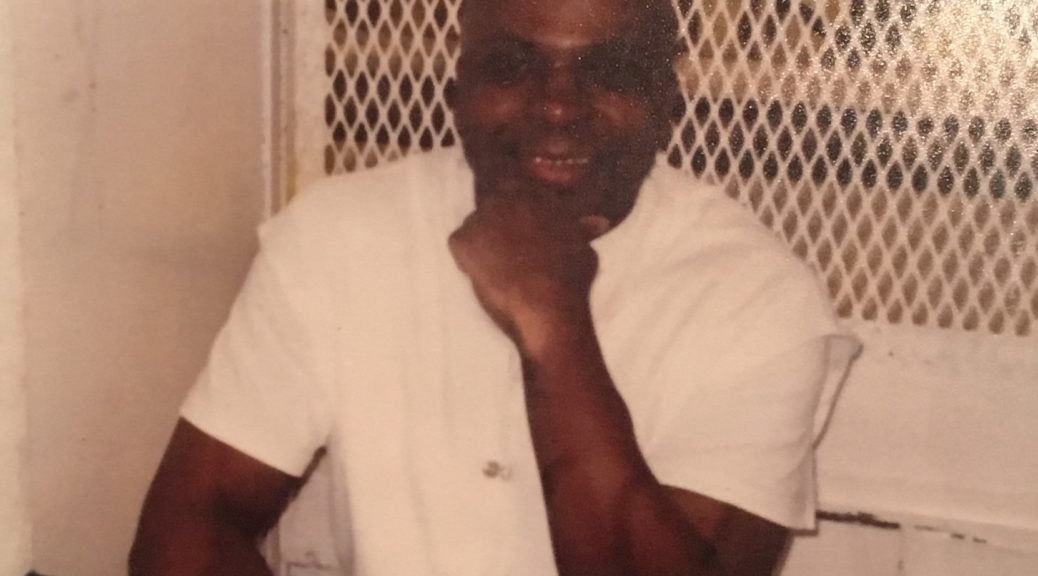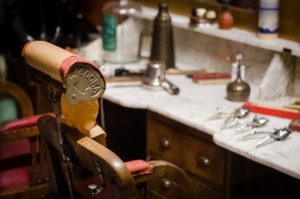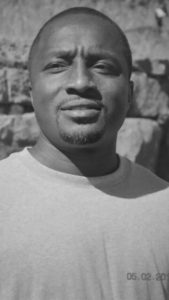I love people. They’re interesting, different, entertaining, and at times – frustrating. Over the last 9,136 days of being monitored, tested, and prodded – I’ve also had the opportunity to observe those doing the surveillance – the Correctional Officers.
I’m going to step on some toes, but I’ve been known to do that. I will not call them ‘guards’ or ‘bosses’ or whatever else has been handed down over the years. Everyone deserves respect. We all start this life at the same place after all. That is until someone decides – for whatever reason – they should be in charge. Some are born to lead, some to follow, and some, unfortunately, should get the hell out of the way.
 I know absolutely no one – I repeat, no one – who stood up in the third grade after being asked the question, “What do you want to be when you grow up, Matty?” and replied with enthusiasm, “A prison guard!”
I know absolutely no one – I repeat, no one – who stood up in the third grade after being asked the question, “What do you want to be when you grow up, Matty?” and replied with enthusiasm, “A prison guard!”
That’s just not reality. We wanted to be astronauts, firemen, nurses, soldiers, pilots, mechanics, cowboys, and last but not least, police officers.
I was fortunate to be raised by a father who was ex-Army, his two brothers Navy and Air Force. All military service members, past and present, have my undying support and respect for their service and dedication. Some of my friends, before I came to this place, were police officers. The same respect is extended to them.
Sometimes, though, you have to hang up the cleats and walk away. That means, when you’re military or police career is over, you should move on – there are others waiting to fill your shoes. You deserve to relax, have a few drinks, kick up your feet and enjoy life.
However, the prison systems of this country are so full, there’s a shortage of officers to supervise us. At the top of the list of candidates for these jobs are ex-military, ex-police, ex-security guards – you might see where I’m going with this. Then its junior college or college students who cannot, for whatever reason, continue their academic endeavors to get their degree. The curve continues to decline from there.
Ex-military, usually, are the easiest to deal with, especially the older military, those who put in more than their four years. Everything is about order, respect, loyalty, trust – they recognize these things, because it’s been instilled in them. They’re no-nonsense kind of guys. They don’t take shit, and they don’t dish any out. They put on their boots, come to work, do their 12 hour shift, and turn a blind eye to the extra pair of dirty boxers, the rubber band or the paperclip you might possess. They’re quiet, alert, peaceful, and sometimes even humorous individuals.
But I’ve met a few badasses… These guys more likely spent their four years stateside and hoped to get out and join law enforcement but couldn’t. They aren’t ready to let go. They – even though they’ve never charged up Hamburger Hill (but have ordered a few in their time), always show up to work with their perfect military haircut and Army-Navy store cargo pants adorned with zippers and secret pockets. They arrive armed with every paramilitary gadget known to man – laser pointer, helmet headlight, mini Maglite, pen attached to a retractable chain release, water bottle holder, empty holster (even though you can’t possess a firearm inside the perimeter), and gas canister holster – casebook in hand, and at the ready.
Weekend warriors don’t even own this much shit. Hell, the state militia doesn’t own this much shit. They arrive in their Range Rover’s, Humvee’s, and Monster Trucks, kicking up dust as they pull into the parking lot, their sound systems blasting. They emerge from their vehicles with their high-fives and let’s go kick some butt attitudes to start their shift. Within twenty months the parking lot is so deep in male testosterone you can actually swim in it.
What’s important to note is – this facility, for all intents and purposes, should apply for a nursing home license. Most inmates couldn’t bust a grape in a fruit fight.
The ex-police officers turned correctional officers are less testosterone driven. They’ve actually spent some time on the front lines. They know how badly things can turn ugly in the snap of your fingers. They’re pretty laid-back, more reserved, less likely to overreact.
Then there are the criminal justice majors. They show up, and when they realized the error of their ways, usually depart within a couple of years. The wiser ones quit before they even complete the Academy.
Then there are all the others, a melting pot of individuals, some okay some not so okay. Others are downright frightening, due to the fact that they were but moments away from a felony conviction themselves before they were hired into the world of free money, long hours and constant turmoil.
Mr. George Beto, an ex-warden and ex-director of the prison system said it best in an interview. He was asked – if he could let any offender go that he wished, who would it be?
His answer, “Well, if I had my way, I figure about 80% I could let go without any trouble, but the problem with that is, I’d have to let go 80% of the guards, and they’re more dangerous than the inmates.”
Not all correctional officers are bad. I’m not saying that at all. I have enough words in my mouth without anyone putting more in there. But it is what it is, and until we quit paying for new prisons and maybe start to use that money for things likes books – it will stay that way. The way to eliminate ignorance is education.
Insanity is defined as doing the same thing over and over and expecting a different result.
ABOUT THE AUTHOR. Shipwrecked and found. John is currently doing a recent two-year set off, after 25 years of incarceration. He can be contacted at:
John Green #671771
C.T. Terrell Unit A150
1300 FM655
Rosharon, TX 77583
![]()

 Rewind back to 1989. I was 29 years old, had a family, was gainfully employed, and had a foothold on a music career that was more love than dream. It was mid-summer, and I was alone and recording vocals in my makeshift home studio.
Rewind back to 1989. I was 29 years old, had a family, was gainfully employed, and had a foothold on a music career that was more love than dream. It was mid-summer, and I was alone and recording vocals in my makeshift home studio. “I’ll take fifty boxes of the mint,” I said as casually as I could, thinking, ‘my wife is going to kill me’. But that many cookies goes a long way. I wouldn’t have to buy cookies for six months.
“I’ll take fifty boxes of the mint,” I said as casually as I could, thinking, ‘my wife is going to kill me’. But that many cookies goes a long way. I wouldn’t have to buy cookies for six months.
 As a kid my father’s father used to pick me up every Saturday morning to go get a haircut from the ‘brutal barber’, Mr. Plumbar. He had a reputation of using a straight razor on little boys’ heads, then slapping alcohol across the cuts he had made when he was done. Young boys feared getting a haircut from him, and older fathers and grandfathers brought their young boys to him to prove that their sons were brave.
As a kid my father’s father used to pick me up every Saturday morning to go get a haircut from the ‘brutal barber’, Mr. Plumbar. He had a reputation of using a straight razor on little boys’ heads, then slapping alcohol across the cuts he had made when he was done. Young boys feared getting a haircut from him, and older fathers and grandfathers brought their young boys to him to prove that their sons were brave. Nothing is sacred here. We still aren’t even provided water outside, and it’s only getting hotter. Water on a hot day should not be considered a privilege. It’s not for the attack dog – he has a big bucket of water to drink out of. That’s what it’s all about though – it’s a system designed to slowly strip away our humanity and whatever self worth we have left. In the name of justice we are left in the care of the unjust. We’ve let people down and we have to find a way to forgive ourselves and become the people we were meant to be, in a world where our authority figures view us as less worthy than the dog on the yard.
Nothing is sacred here. We still aren’t even provided water outside, and it’s only getting hotter. Water on a hot day should not be considered a privilege. It’s not for the attack dog – he has a big bucket of water to drink out of. That’s what it’s all about though – it’s a system designed to slowly strip away our humanity and whatever self worth we have left. In the name of justice we are left in the care of the unjust. We’ve let people down and we have to find a way to forgive ourselves and become the people we were meant to be, in a world where our authority figures view us as less worthy than the dog on the yard. I’ll never forget that summer day in ‘78 when my childhood innocence was shattered. I was four, the sun was out, and my only interest was in candy and fun. We lived in Mary Ellis trailer park, a scant neighborhood on the lower eastside of town. Everyone was treated like family in Mary Ellis. Even the insurance guy and the mailman were often shown hospitality. It was a fine community to grow up in – until that day when everything changed.
I’ll never forget that summer day in ‘78 when my childhood innocence was shattered. I was four, the sun was out, and my only interest was in candy and fun. We lived in Mary Ellis trailer park, a scant neighborhood on the lower eastside of town. Everyone was treated like family in Mary Ellis. Even the insurance guy and the mailman were often shown hospitality. It was a fine community to grow up in – until that day when everything changed. Helen’s estranged husband, behind the wheel of his blue Chevy Nova. Whirling tires spat dust and gravel as he backed the manic machine into the street and barely avoided smashing a parked car. His chestnut skin glistened with perspiration while franticness hardened his face. As Uncle Jimmy scoured for an escape, I thought to wave goodbye.
Helen’s estranged husband, behind the wheel of his blue Chevy Nova. Whirling tires spat dust and gravel as he backed the manic machine into the street and barely avoided smashing a parked car. His chestnut skin glistened with perspiration while franticness hardened his face. As Uncle Jimmy scoured for an escape, I thought to wave goodbye. ABOUT THE AUTHOR: Terry Robinson writes under the pen name ‘Chanton’, and this year he has seen the release of
ABOUT THE AUTHOR: Terry Robinson writes under the pen name ‘Chanton’, and this year he has seen the release of